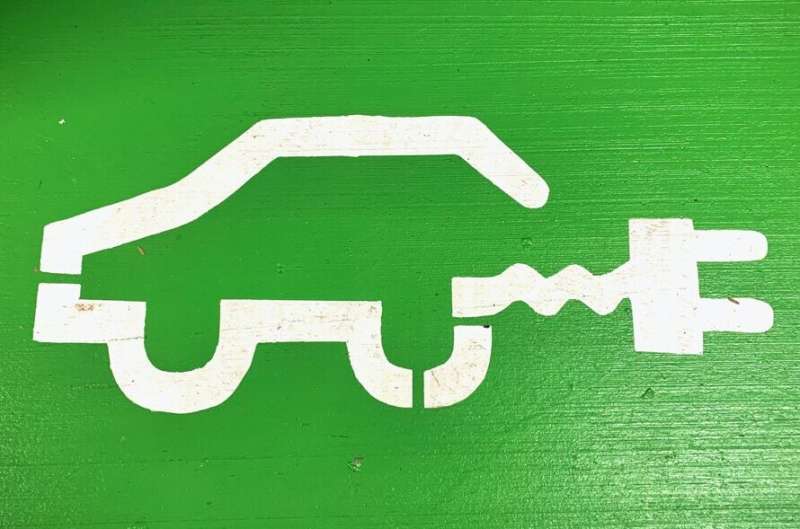This article has been reviewed according to Science X's editorial process and policies. Editors have highlighted the following attributes while ensuring the content's credibility:
fact-checked
reputable news agency
proofread
More EVs will slash California's transportation budget, says report. Are gas taxes the answer?

California's plans to tackle climate change will lead to a significant decrease in state funding for transportation over the next decade, according to a report by the state legislative analyst's office.
Widespread adoption of electric vehicles will reduce revenue from state gasoline and diesel taxes and could lead to funding loss for key services, including highway maintenance and public transit, according to the report. It estimated a loss of $4.4 billion annually, or 31% of current funds.
"I wouldn't call this gap severe in the short run, but it will be coming at a certain point in the future," said Frank Jimenez, the staff analyst who authored the report. "There is planning that could be done today to address it."
To close the gap on future revenue declines, the report outlined several possible options: raise existing fuel taxes and vehicle registration fees, use other general funds and reducing spending, or create new revenue by charging drivers based on mileage.
Getting more drivers into electric vehicles is a key part of the state's ambitious plan to decarbonize its enormous economy by 2045, starting with a goal to cut greenhouse gas pollution by 48% below 1990 levels by 2030.
This plan is currently underway, with EVs making up 26% of new car sales this year and a ban on new gas-powered car sales looming in 2035. But future revenue loss from state gas taxes is a snag that state leaders have not yet planned for, said the report.
The lion's share of this year's $14.2 billion in state transportation funding comes from state fuel taxes, including the .57 cents that California drivers pay per gallon of gasoline. Much of it goes to road repairs, highway maintenance and public transit at the Department of Transportation.
The report tracked the impacts of climate policies on state transportation funding by calculating revenue losses based on the Air Resources Board 2022 scoping plan, which set a sweeping policy framework to achieve decarbonization across polluting sectors.
Transportation experts and analysts have studied gas tax revenue declines as a drawback to EV adoption for years, but it's still largely unclear when and how quickly the state will lose transportation funding.
"Nobody can see the future," said Asha Weinstein Agrawal, professor of urban planning at San Jose State University. "Right now we're seeing tiny reductions in gas tax revenue but that is going to change quite fast, because it does look like people are going to buy electric vehicles at a fast clip."
Among the potential remedies for the future shortfall, fuel tax increases and creating a per-mile cost to drivers would burden low-income Californians the most, because they're less able to afford an electric vehicle and more likely to have longer commutes amid high housing costs.
"I don't think that anybody realistically thinks that that [fuel tax increases] will happen or should happen," Weinstein Agrawal added. "It just seems unfair and politically highly unlikely to go anywhere."
Yet the state has already undertaken several studies on what's called a road charge. Oregon, Utah and Virginia have active road charge programs that collect mileage information through odometer readings or vehicle plug in devices.
State transportation funding is only one-third of all money put toward transportation in California. The rest comes from local and federal sources, which is increasing thanks to the federal Infrastructure Investment and Jobs Act.
"It's important to see the bigger picture," said Carter Rubin, senior transportation lead for the Natural Resources Defense Council. "The state share is declining, but other revenue sources are increasing."
Another key question, he said, is how the state invests its gas tax transportation revenues. Environmental advocates want to see a higher priority placed on public transit and mobility projects over highway widening projects, for example.
"We're going to need a lot of transportation investments in the next decade, two decades, to build the kind of infrastructure we'll need for a climate ready future," Rubin said. "We should not settle for declining revenues."
©2023 The Sacramento Bee.
Distributed by Tribune Content Agency, LLC.

















